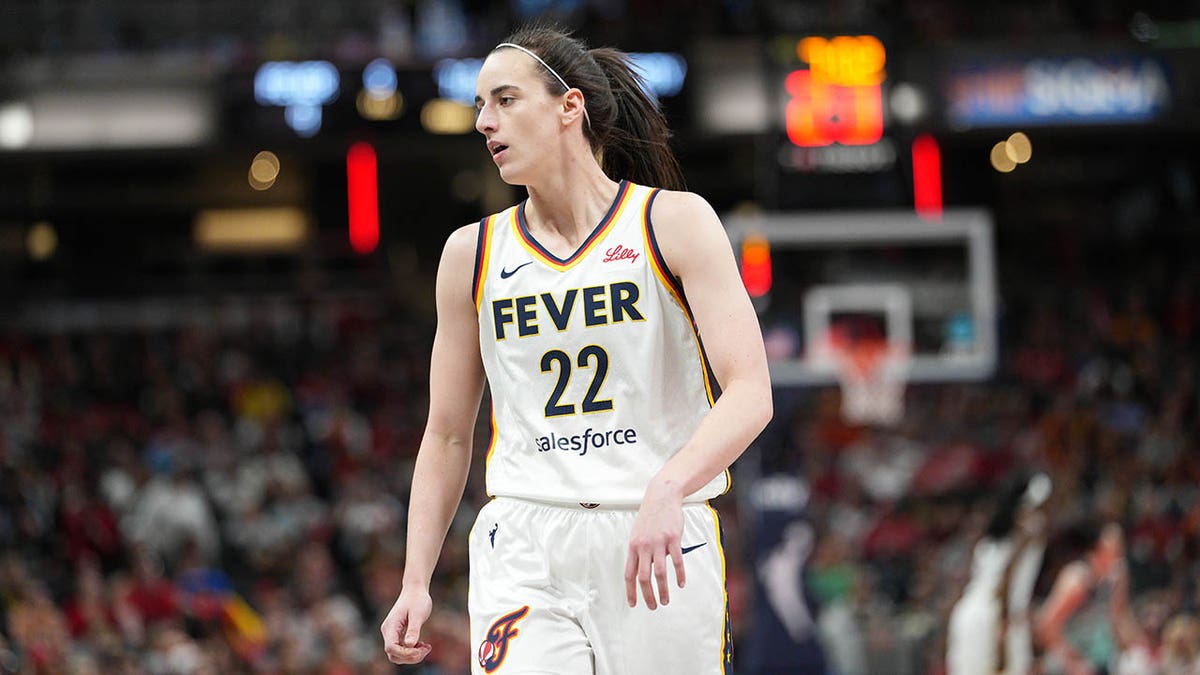The recent surge in popularity of the WNBA, largely fueled by the arrival of Caitlin Clark, has brought with it intense scrutiny and debate surrounding the league and its players.
The excitement surrounding Clark’s talent and marketability has been undeniable, but it has also sparked discussions about race, representation, and the challenges faced by Black female athletes in a predominantly white-dominated sports landscape.
This backdrop is essential to understanding the controversy that erupted following comments made by sports analyst Jemele Hill.
The controversy began when Hill, a prominent voice in sports media, made a series of observations on social media regarding the media coverage of Caitlin Clark and the contrasting treatment of Black WNBA players.
Her comments, while intended to highlight perceived disparities in media attention and endorsement opportunities, were quickly interpreted by many as an accusation of racism against Clark herself.
The phrasing and context of her statements led to widespread outrage and accusations of unfairly targeting a young player who is still establishing herself in the league.
Hill’s initial remarks centered on the idea that Clark was receiving an unprecedented level of media coverage and endorsement deals, while veteran Black WNBA players, who have consistently demonstrated exceptional skill and dedication, were often overlooked.
She argued that this disparity reflected a broader pattern of systemic bias within the sports media and marketing industries. The intention, as she later clarified, was to critique the system, not to accuse Clark of being racist. However, the initial interpretation of her words proved difficult to overcome.
The immediate reaction to Hill’s comments was overwhelmingly negative. Social media platforms exploded with criticism, with many users accusing her of unfairly targeting Clark and of making a reckless and unfounded accusation.
The hashtag #CancelJemeleHill began trending, and she faced calls for her to be removed from her current broadcasting role. The speed and intensity of the backlash demonstrated the sensitivity surrounding issues of race and gender in sports, and the potential for misinterpretation in the age of social media.
In the wake of the intense criticism, Hill attempted to clarify her position and to address the concerns raised by those who felt she had unfairly targeted Clark.
She issued a lengthy statement on X (formerly Twitter), reiterating that her intention was not to accuse Clark of racism but rather to critique the media’s coverage and the systemic biases that exist within the sports industry. She acknowledged that her phrasing could have been clearer and expressed regret for any harm her comments may have caused.
Despite Hill’s attempts at clarification, many remained unconvinced. Critics argued that her initial comments were irresponsible and that her subsequent apologies were insufficient.
They pointed out that Clark, as a young player, deserves to be judged on her performance and character, not on accusations of racism. The controversy highlighted the challenges of navigating complex social issues in the public sphere and the difficulty of repairing damage once it has been done.

The situation has also sparked a broader conversation about the role of race and representation in women’s basketball. Some analysts have argued that Hill’s comments, while perhaps poorly worded, raised legitimate concerns about the disparities in media coverage and endorsement opportunities for Black WNBA players.
They point to the historical marginalization of Black female athletes and the ongoing struggle for equal recognition and respect. This perspective emphasizes the importance of addressing systemic biases within the sports industry.
Caitlin Clark, known for her poise and professionalism, has largely refrained from directly responding to Hill’s comments. She has focused on her performance on the court and on building relationships with her teammates.
This measured response has been widely praised, further enhancing her image as a mature and level-headed athlete. Her ability to navigate the controversy without engaging in public back-and-forth has been seen as a sign of strength and resilience.
The controversy has had a significant impact on Hill’s career. She has faced criticism from colleagues, sponsors, and fans, and her reputation has been tarnished. While she has not been removed from her current broadcasting role, her influence and credibility have been diminished.
The incident serves as a cautionary tale about the potential consequences of making controversial statements in the public eye, particularly on sensitive issues like race and gender.

Looking ahead, it remains to be seen how the fallout from this controversy will play out. Hill will need to work hard to regain the trust and respect of her audience. The WNBA will need to continue to address the issues of race and representation that were brought to the forefront by this incident.
And Caitlin Clark will need to continue to focus on her performance and to demonstrate her commitment to the sport. The situation underscores the importance of thoughtful communication, sensitivity, and a willingness to engage in constructive dialogue about complex social issues.

